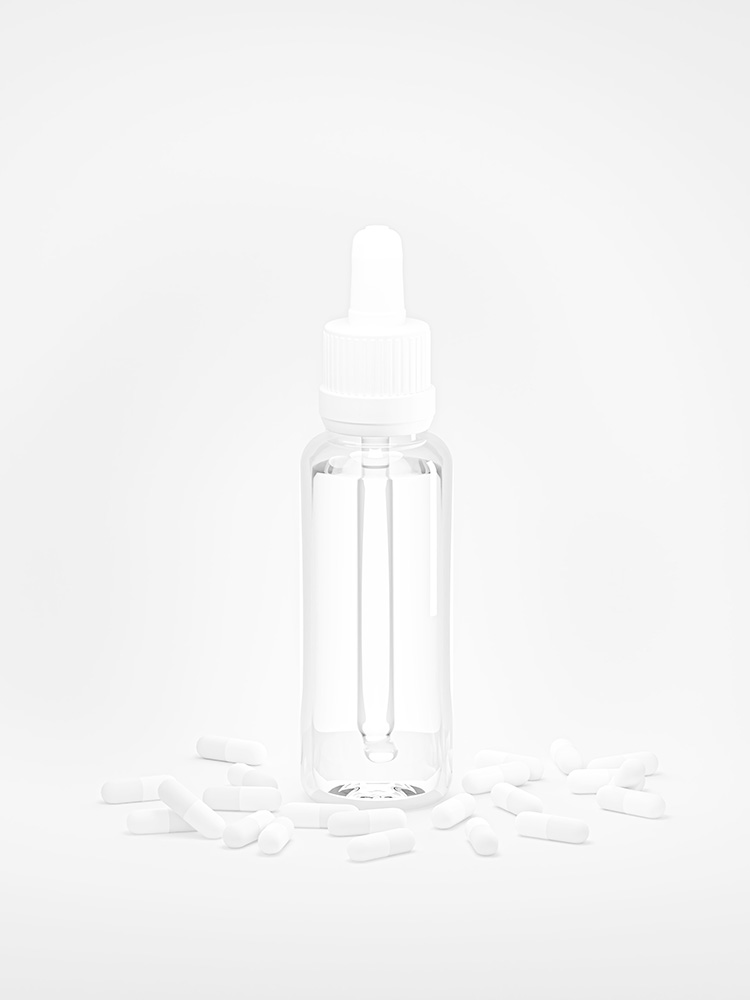The sun vitamin.
Text: Ori Schipper
Most of the Swiss population have seasonally low levels of vitamin D. Researchers at the University of Basel studied drops, tablets and capsules to work out the best way of raising those levels.
It’s a problem affecting almost everyone living at our latitude: In winter, the sun is lower in the sky and its rays enter the atmosphere at an angle, heavily filtering the light. This reduces UVB radiation, making it too weak to trigger the photochemical response in our skin required to produce vitamin D.
When bones soften
“The majority of the Swiss population has a distinct vitamin D deficiency around February and March,” says pharmacist Jean-Pierre Rothen. He explains that, while vitamin D got its name for historical reasons, strictly speaking it is not a vitamin at all, because our bodies can produce it themselves.
Yet without UVB radiation, we develop a deficit that impacts our body’s calcium metabolism, among other processes. “Over time, the bones go soft like rubber,” says Rothen.
Additionally, more and more research is pointing to vitamin D deficiency as a cause of diabetes, cancer and various autoimmune diseases. For this reason, physicians recommend using supplements to boost vitamin D levels in winter
Mutual decisions
As a member of the Pharmaceutical Care research group at the University of Basel, Rothen studies the question of how to motivate patients to take medications as prescribed. “Multiple studies have shown that only half of medications are taken as recommended,” says Rothen.
Until just a few years ago, the problem was known as “compliance” by experts in the field. But this was a term born, in Rothen’s words, of a “paternalistic worldview in which patients were expected to comply with the orders of their physicians”. He prefers the term “adherence”, as it better reflects the fact that physicians and their patients nowadays often engage in shared decision-making.
At its core, Rothen’s research group explores the factors that influence adherence. Vitamin D is well suited to this area of research because a variety of products are licensed for use in Switzerland: Vitamin D can be taken in the form of capsules and tablets of different doses, or drops of an oily or alcoholic solution. “But the greasy oil and high-percentage alcohol aren’t very popular,” says Rothen.
Once a month is best
Since vitamin D has a relatively long half-life of several weeks, people who substitute daily, weekly or even just monthly have comparable blood levels of vitamin D. Yet as Rothen and his team found, most adults surveyed preferred to take vitamin D just once per month.
Rothen has translated this finding into practice: Alongside his part-time position at the University of Basel, his company developed capsules containing monthly dosages.
Rothen recently launched a further study in collaboration with experts at the Clarunis University Digestive Health Care Center. The study is designed to determine whether supplementation with vitamin D capsules during the six winter months can reduce inflammation in the intestines of people with chronic inflammatory bowel diseases such as Crohn’s disease and ulcerative colitis. “The study is still underway,” says Rothen. He expects to see results next year. So the story of vitamin D – the vitamin that isn’t really a vitamin – continues.
More articles in this issue of UNI NOVA (November 2024).

